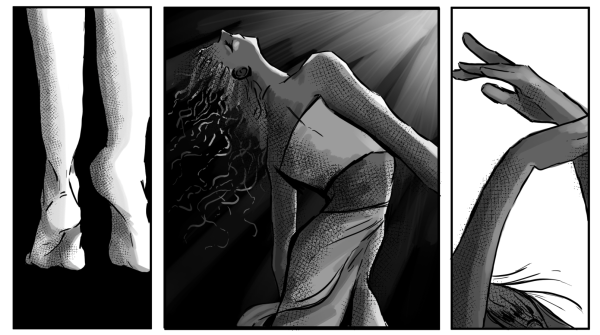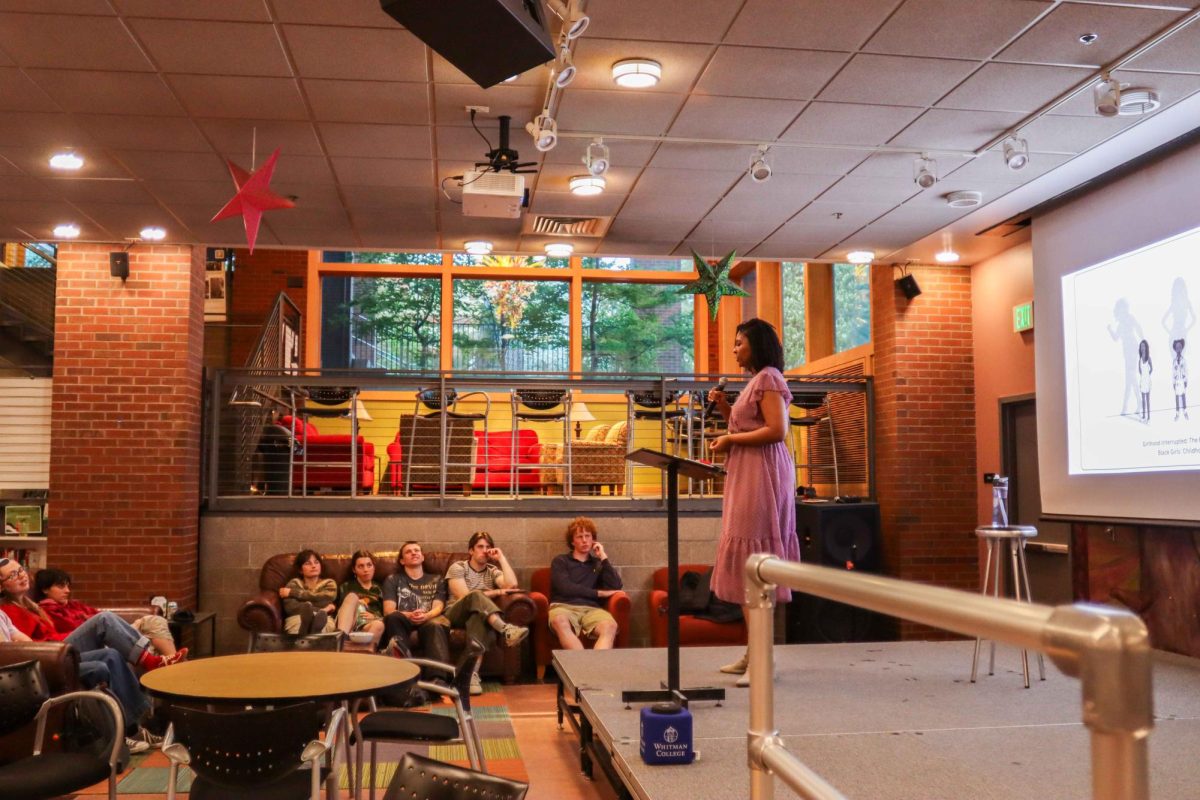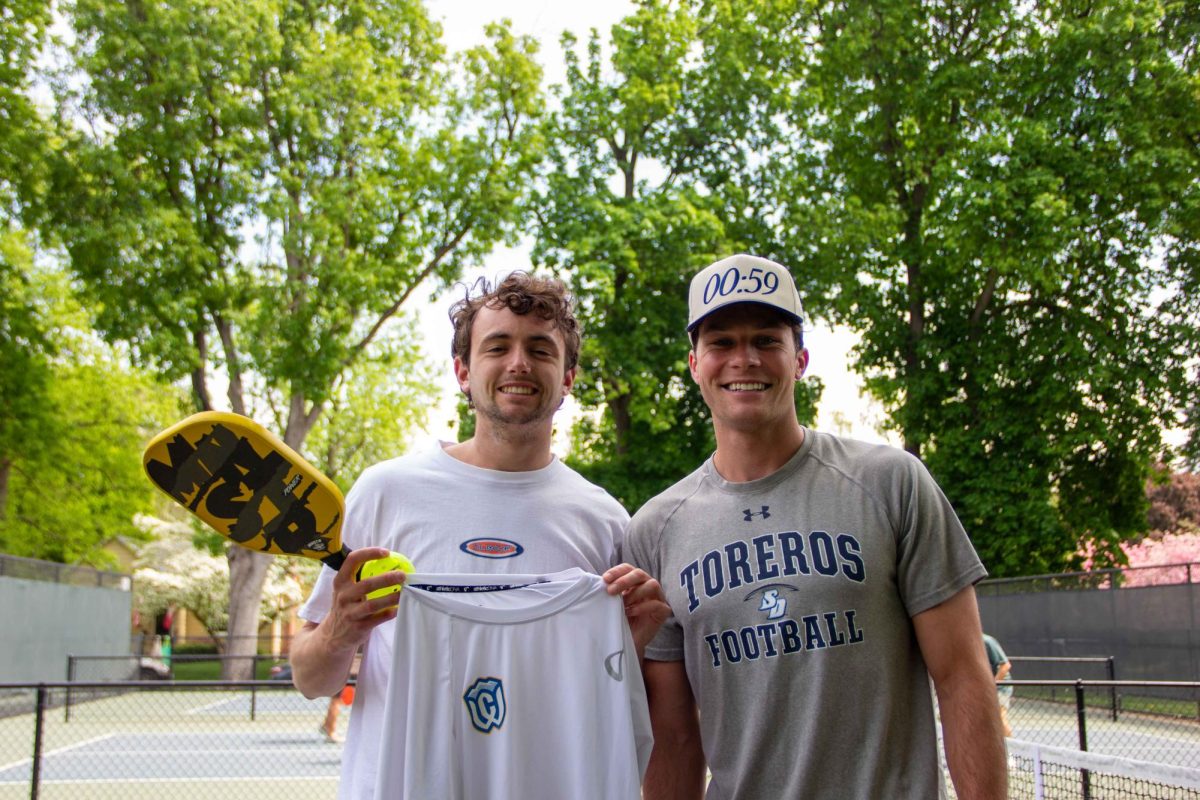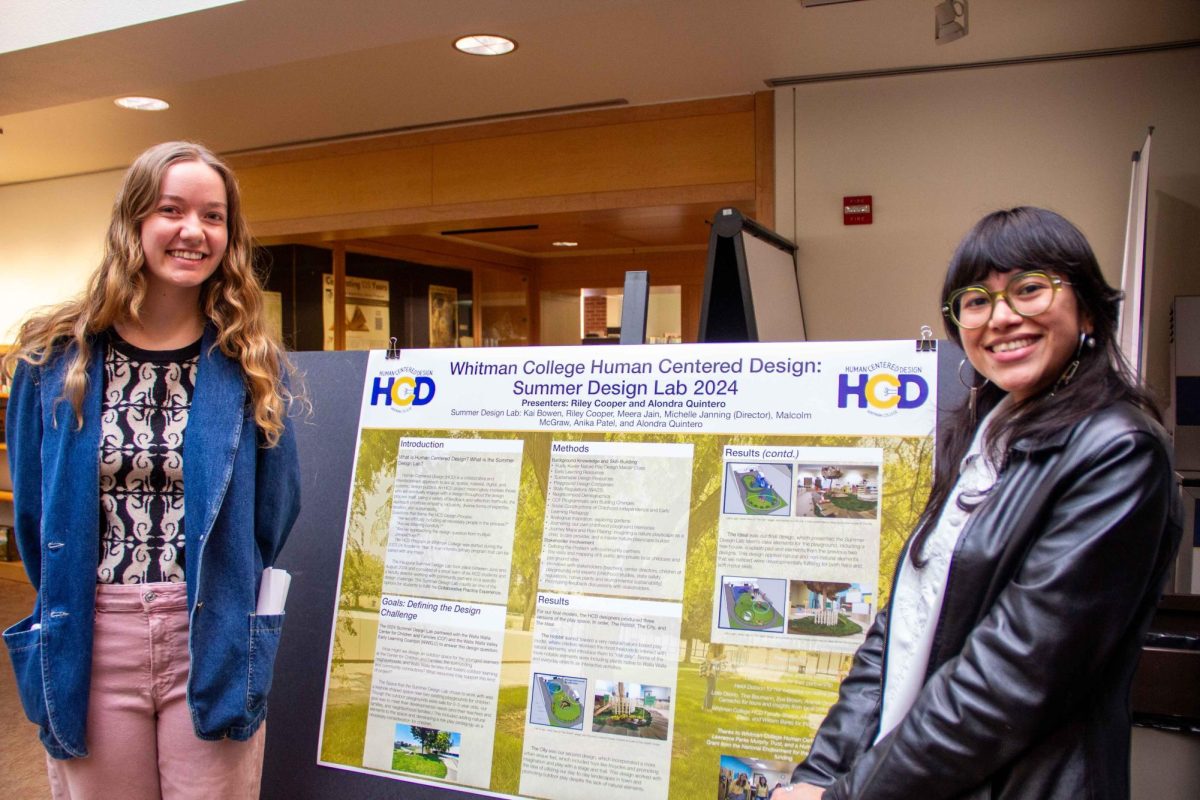
For 11 years, Whitman’s Studio Series has been bringing experimental dance to the stage for students and community members to enjoy. This year, the series featured three different pieces: “SHIFT” by Renée Archibald and Mallory Rubin, “held by the bath//until you return” by Jessica Bertram Williams and “A field, A forest” by shannon stewart and Tahni Holt.
Renée Archibald, Associate Professor and Director of Dance, who curated the show and co-performed SHIFT, explained that the series brings contemporary dance to campus to give students new way to engage with the arts.
“[The Studio Series] support[s] artists with studio space and an opportunity to try out new performances in a low-pressure setting. [This allows them to] share contemporary performance with the larger Walla Walla community and scholars from other areas on campus [and] provide real-live-performance objects of study for students,” Archibald said.
For Archibald, the structure of the series allows faculty and performers to get involved even if they themselves are not performing — creating unique opportunities for critical dialogue grounded in theory.
“The moderated discussions attempt to bring theory and practice together for students so that they can see how other artists grapple with ideas and perspectives within their processes… There is a long-standing institutionalized way for Whitman faculty, most often coming off of sabbaticals, to share their research on campus — it’s called Faculty Forum… Over the last 10 or so years, the Series has supported at least seven faculty members working in performance research and engaged around another 30 generous faculty members in overlapping professional discourse via post-performance moderation,” Archibald said.
Mallory Rubin, co-performer and co-choreographer for “SHIFT,” emphasized togetherness and collaboration as core to the piece itself and the creative process.
“’SHIFT’ was born out of a collaboration that began last summer. It was inspired by the relationship between me and Renée, and both of our interests as choreographers and dancers… [‘SHIFT’] is a duet with two people in a series of various interactions, oscillating between coming together and being on their own. It includes themes and ideas of discovery, transformation, finding and losing each other, care, struggle, birth, listening and being seen,” Rubin said.
While Studio Series has no formal unifying theme between the three pieces it showcased, this year there were two collaborative duets. “A field, A forest” centers connection to trees and the performers work through this abstract feeling throughout the dance.
shannon stewart, who choreographed and performed “A tree, A forest” alongside Tahini Holt, described how the production depended on extensive research.
“We were both separately and intuitively working in relationship to trees and forest systems and then decided to try to do something together around it. We are working with our translation of our ‘felt sense’ in relationship to the tree research we’ve been doing in the last year. We wanted to experiment with ways of translating that through performance… We live in two different places so we would come together for intensive rehearsal processes that would be a combination of indoor and outdoor research,” stewart said.
The only solo performance, “held by the bath//until you return,” also dealt with translating complex and multifaceted feelings into performance. While centering her own experiences, Jessica Bertram Williams, a Dance Faculty Fellow at Whitman, also engaged Afro-feminist work by Alice Walker in her performance.
Junior Delilah Hartwell, who took one of Bertram Williams’s classes, watched the performance and engaged in the post-show interview. Hartwell discussed how the performance expanded her knowledge of Womanism, a term Walker coined in her book “In Search of Our Mothers’ Gardens: Womanist Prose” to emphasize the necessity of foregrounding the issues black women face. For Hartwell, the performance helped expand her knowledge of Bertram Williams’s influences.
“I loved learning more about the work that influenced Jessica in the context of the piece and beyond. Contextualizing the performance within the scope of Womanism and Alice Walker’s writing really enriched my understanding of the work,” Hartwell said. “I had come across Womanism in a class before, but its role in this work especially made it ‘click’ for me. It’s one thing to encounter something in a classroom, but seeing it manifest onstage and in real personal experience is nothing short of magical.”
Promising to offer something refreshing and thought-provoking in each of its iterations, the Studio Series will return again next school year with another round of contemporary dance performances brought to life on campus.










